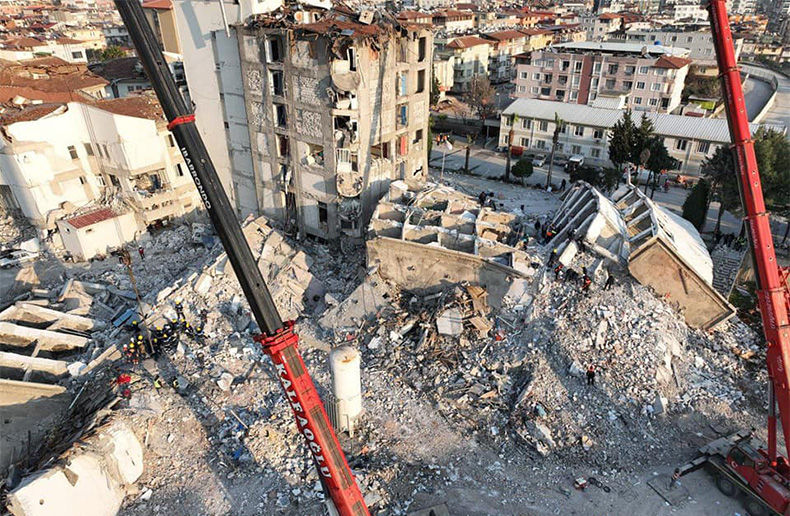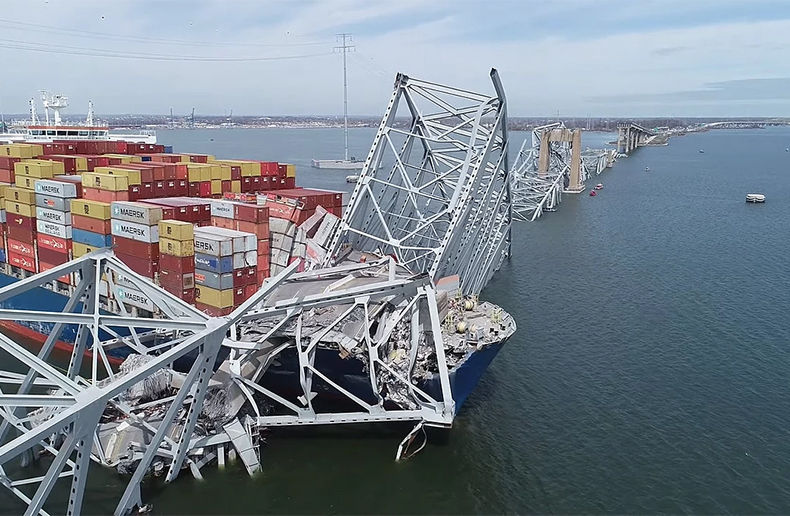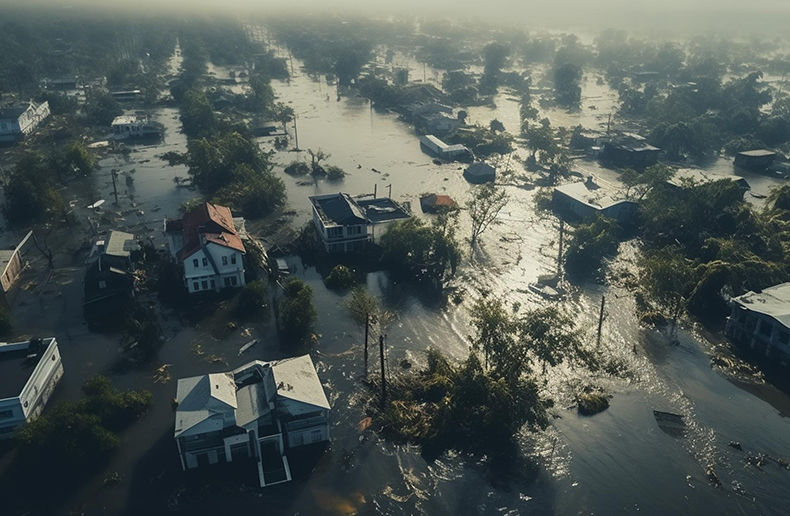A few insurers have changed the wordings in their home insurance policies to exclude coverage for damages caused by criminal acts, namely marijuana-growing operations. But some insurers say only a common industry wording can win in the courts.
In the second half of 2000, the Vancouver office of the Insurance Bureau of Canada (IBC) was approached by member insurers concerned about insuring homes where marijuana is grown, also known as “grow-ops”. Soon after, the Standards & Practices Committee, comprising representatives from insurance companies, formed an ad hoc group to examine the budding quandary.
The team could not agree on a final solution. An IBC document dated August 27, 2001 proposed sound underwriting and wording changes as possible solutions.
Grow-ops do damage
Grow-ops are usually set up in rented dwellings. This puts the onus for repairs on the owner. The installation of a grow-op itself often requires structural changes to a home. These alterations can be considered as vandalism. Water damage and mould are the most common and less expansive results of grow-ops.
Fire is also possible because of electrical rewiring. Grow-ops often bypass hydro lines to avoid detection by utility companies and may not employ fuses or circuit breakers. Fire claims are less likely but pricier, and they are hardest to exclude from contracts.
Typically, damages resulting from criminal acts are not insured if they occur in the owner’s residence because he or she would have knowledge of the illegal actions.
More than criminal acts
“The exclusion is directed to the conduct of the tenant. Policies have always excluded intentional or criminal acts by the insured,” says Kate McLean, lawyer and partner at Singleton Urquhart in Vancouver. “It’s making sure the wording reaches or pertains to criminal activity of a tenant and they do not often do that.”
Currently, most policy wordings state the criminal activity has to be known to the insured, says Fred Baker, President of Family Insurance Solutions, a managing general agency (MGA) in B.C. Therefore, insurance companies are on the hook for these grow-op claims, he adds, estimating 6,000 to 10,000 of its near 60,000 policyholders are for rented dwellings.
A report by the Department of Criminology and Criminal Justice at University College of the Fraser Valley estimates that from January 1, 1997 to December 31, 2000, 149 B.C. police jurisdictions confirmed 8,010 grow-op cases. That is just over 2000 cases per year at a rate of almost six per day.
On January 30, 2002 over 500 police officers across Canada took part in Operation Greensweep – a specially devised attack to take out grow-ops. According to a report filed by Criminal Intelligence Service Canada, the sting resulted in the execution of 189 search warrants, 162 arrests on 367 charges, and the confiscation of 56,201 marijuana plants worth roughly $56.2 million. Almost all the grow-ops, 99 of which had eluded hydro, posed a significant fire and safety hazard to the community.
From April 15 to 30, Greensweep II took place and 255 people were arrested on 510 charges, and 60,128 marijuana plants at an approximate value of $60 million were seized on the execution of 208 search warrants. As well, 103 of the operations contained hydro bypasses.
Grow-op claims however are relatively low. “It hasn’t been a big issue for us,” says Heidi Sevcik, Vice-President Underwriting at Gore Mutual. The Co-operators General Insurance had four grow-op claims this year in B.C., says John Kohoot, B.C. Claims Supervisor, which is a decrease from last year. Numbers in Ontario since January 1, 2002 sit at around seven, four of which were fire claims, says Steve Turner, Investigator for Toronto Investigations at Co-operators.
Fire difficult to exclude
Only two of the nine insurers The Insurance Journal spoke with – Allianz Canada and Co-operators – have included what they say is necessary wording to deny coverage for all criminal acts, including fire.
Family Insurance as an MGA developed its own residential insurance policy – underwritten by Economical – that also excludes grow-ops, including fire.
Excluding fire is unique and contradictory because the insured peril of fire cannot be excluded. Insurers are hoping the wording changes will lead policyholders to believe there is no coverage and not make a claim, says Martin Carrier, Senior Vice-President at Optimum General.
“Personally, for our company, we considered that but we finally thought you cannot exclude fire coverage anyway,” says Mr. Carrier. “Maybe that can be used as a good deterrent but we do not think it will hold in court.”
Fire coverage is guaranteed in the in all provinces except Quebec, admits Roger Long, Vice-President Personal Insurance at Allianz. That is a reason why Allianz decided not to follow Co-operators, choosing to employ a void provision at the contract level in the fall of 2001 instead of an exclusion, says Mr. Long. The difference between the two is if the void provision is broken, the contract never existed, while exclusions acknowledge a contract’s existence but seek to cancel a policy.
“Cancelling does no good because the damage has already happened and the coverage was in place at the date of loss,” states Mr. Long, hopeful that IBC standardized wording will be adopted by all insurers. “But if I declare the contract void, I’m saying…there has not been a contract, it does not exist, here’s all your money back.”
However, Co-operators is certain its grow-op exclusion introduced in B.C. in June 2000 and other provinces in November 2001 is effective enough to win a court case, says Mr. Turner.
And while a grow-op wording can deter fire claims, possibly winning a court battle with an insured as well, there is one particular body whom insurers cannot avoid paying – financial lenders. “The insurance company still has to look after the interest of the mortgagee because that’s what the standard mortgage clause does,” says Betty Pang, Manager of Claims in Insurance Accounts at BCAA. “It protects the mortgage holder from any sort of negligent bad act that…an insured may do.”
Insurance companies do not necessarily need a grow-op exclusion in order to prevent vandalism losses, though. BCAA and Co-operators for instance, have exclusions listed under the insured peril of vandalism or malicious acts, stating that vandalism caused by a tenant is not insured. It can also extend to members of a tenant’s household and to employees of a tenant. Gore has a limit on vandalism, thus avoiding larger payouts.
Economical has a “fair size” of rented dwellings on its books and will probably not exclude vandalism by tenants because clients would not agree, says Henry Hamm, Personal Lines Product and Pricing Manager.
Dominion of Canada has a similar stance. “We provide coverage for tenant vandalism,” says Jerry Dalla Corte, Vice-President at the company.
But insurers need the proper wording if tenant vandalism is to be denied. Otherwise an insured could win a court case, arguing structural changes made to a rented dwelling are acts of vandalism.
“The courts will interpret an insurance policy in instances where there’s any ambiguity in the language in favour of the insured and against the insurer who drafts the policy,” says Ms. McLean. “So if it’s the intention of the insurer to exclude any particular type of loss or circumstance they need to do that in clear language.”
Winning in court
On March 12, 2002, British Columbia Insurance – now Optimum West Insurance – lost a grow-op case before the B.C. Provincial Court. The insured argued the tenant’s actions were vandalism, a covered peril. The insurer said it was not because the tenant purposely installed and operated a grow-op. The judge stated Optimum could have won the case if it had used a specific exclusion for marijuana grow-ops in at least one of two sections.
First, as an exclusion under the peril of vandalism and malicious acts. And second, under the section “loss or damage not insured” where Optimum lists 21 other exclusions.
The loss occurred under the insurer’s Fire and EC (Extended Coverage) policy, a basic package that didn’t have a deductible against the manufacture of illegal substances, says Mr. Carrier. Its all-risks plan, however, already had a $10,000 deductible per occurrence since May 2001. In July 2002, the same deductible was applied to new and renewable Fire and EC policies.
A deductible is not the perfect solution but it solves a portion of the grow-op problem by not covering all repair costs ,says Mr. Carrier. It also deters insureds from making claims below $10,000. A negative feature is criminal acts are still insured and that’s just not right says Mr. Brindamour.
Loss of business seen
Another explanation why many insurers have not gone the way of Co-operators and Allianz is the fear that it could lead to a loss of business. “It may be for competitive reasons that they do not want to add an exclusion and cause confusion in the marketplace,” says Randy Bundus, Vice-President, General Counsel and Corporate Secretary at IBC. Insurers are “cognizant of how brokers would respond to changes like that.”
Family Insurance Solutions has seen a decrease in the number of rented dwelling policies it writes since including its grow-op exclusion around two years ago, Mr. Baker confirms. “I would assume that we probably lost a lot of rented dwellings because agents did not want to, or would not want to put themselves in that position. If they can get the coverage elsewhere, then you owe it to your client to get it.”
Economical and ING Canada confirmed they would insert either an exclusion or void provision in their policies before or shortly into 2003. “There’s nothing firm yet, but we’re on the verge of firming it up,” says Charles Brindamour, Senior Vice-President of Personal Lines at ING, which began to focus on the grow-op problem in the beginning of 2002.
“There will probably be something coming out in the New Year,” reveals Mr. Hamm at Economical, agreeing it is very hard to exclude coverage completely, but states that any new wording can be effective. Economical experienced only a few grow-op claims, reveals Mr. Hamm.
As for the rest, BCAA, Dominion, Gore Mutual, Wawanesa, and Optimum are waiting on the IBC before adding a grow-op exclusion or void provision. And with the Standards & Practices Committee meeting this mid-November, IBC rumblings indicate the grow-op issue will be retackled, although there is no guarantee, says Mr. Bundus. Insurers, however, are never obligated to follow either IBC’s recommendations or amendments because of competitive reasons, though many do.
One reason for the caution is that IBC wordings, as the industry standard, have a better chance of winning a legal battle, says Mr. Bundus. Ms. Sevcik of Gore, and Ms. Pang at BCAA agree.
“If IBC comes out with a wording then that would be taken under consideration,” states Ms. Sevcik. “Just that the IBC puts it through the legalese to make sure that the wording is such that it would stand up in court.” The IBC wording could stop fire losses but only if an insurer could prove the fire resulted from the grow-op, Ms. Sevcik adds.
“I think we certainly discussed the merits of having an exclusion,” says Ms. Pang. “But we decided that we would wait for the IBC to come out with a generic wording rather than try and craft something on our own that might not be 100% correct or accurate.”
Despite its reservations, Optimum will not automatically turn its back on an IBC standardized wording. “Of course if IBC came up with a kind of exclusion that will become standardized, we will move,” says Mr. Carrier.
Alternative deterrents
Other insurers are also relying on underwriting as well as broker education. Co-operators have a program in place for its brokers and clients. For example, before a rented dwelling can be insured landlords must meet a series of requirements. One particular criterion is that landlords must check the rental once every six weeks, or a property manager must be hired, says Mr. Kohoot.
A similar approach is in use at Wawanesa, Optimum, and Gore. Landlords are required to visit a dwelling once every 60 days at Gore, says Ms. Sevcik. Inspection requirements are different at Optimum.
Co-operators also has a brochure for owners of rental properties. Distributed by brokers, the leaflet lists grow-op characteristics such as: covered windows, a “skunky” smell, and tenants who insist making rent payments in cash and away from the premises.
Economical will place greater emphasis on underwriting and brokers will be asked to be more diligent says Mr. Hamm. The insurer will soon start “inspecting every single rented dwelling that we write,” says Mr. Hamm.













